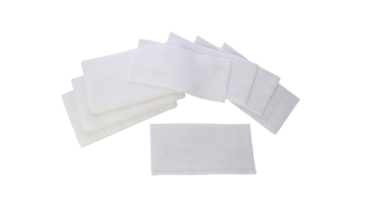
The body is made up of more than 100 billion cells, each of which is made up of fats and proteins. Carbohydrates offer these cells energy. These three components are necessary to support your body’s basic health. However, these nutrients alone do not make your body and skin healthy. Your body also needs vitamins, minerals, and phytonutrients to perform optimally and look radiant.
These nutrients help the skin repair damage, build support structures, stay moist, and prevent disease. For example, collagen is the skin’s main structural component, and the body cannot make it without vitamin C. If you do not eat foods rich in vitamin C, such as oranges, lemons, and strawberries, your skin can lose its tight structure and begin to loosen, sag, and wrinkle.
Nutrients to the Rescue
There are many nutrients that the skin needs to function properly and look radiant. The table on the next page lists some of the most important nutrients for the skin and describes some of their roles in promoting skin health. Note that because hair follicles live in the skin, your hair’s health is related to your skin’s health. For that reason, keeping your skin healthy can help your hair regain that smooth, shiny, soft appearance it had when you were a child.
Read More: thenewspointof.net
Feed Your Skin at Every Age
No matter your age, eating foods to support your skin is important. Teenagers are commonly scolded for their dietary habits with fast food and chocolate frequently at blame for their problems with acne yet adults actually have a greater need for skin nutrients than do adolescents. The body changes and becomes less able to digest and absorb nutrients as you age, and the result is that fewer skin-healthy nutrients from the foods you eat actually reach your skin. This means that the foods you eat need to have a greater concentration of skin-beautifying nutrients
Beauty Has Social Implications
The skin is one of the most important components of an individual’s physical appearance. In humans, the face has evolved to become one of the most important visual communication tools, with thirty or more muscles controlling facial expressions alone
Beauty is a visual impression. If a person’s skin is damaged or unhealthy, his or her appearance suffers. There are myriad conditions that can affect one’s appearance, including:
- Wrinkles. Seen as a sign of age or even frailty by some, others see wrinkles as a sign of wisdom. Regardless of what you think about wrinkles, they affect how you look and how others perceive you.
- Psoriasis. A chronic skin disorder that can have a severe impact on a person’s social life and interactions. It is not contagious and should not be seen as a disease or infection; it is simply a skin problem that causes the skin to appear rough, with red patches and even lesions or blisters.
- Acne. Another skin condition that tends to have a major impact on sufferers’ social experiences, making them feel self-conscious and embarrassed by their skin. This treatable problem can lead to problems with social and sexual relationships.
Beautifying from the Inside Out
Eating the right foods can help your skin fight acne, reduce redness and inflammation, resolve moisture problems, and even reduce wrinkles. For teenagers, adults, and the elderly, a healthy diet can increase energy levels, lower risks of disease, and make the skin more radiant. Keep reading to discover what foods you can easily include in your day to help your skin look and feel gorgeous.





